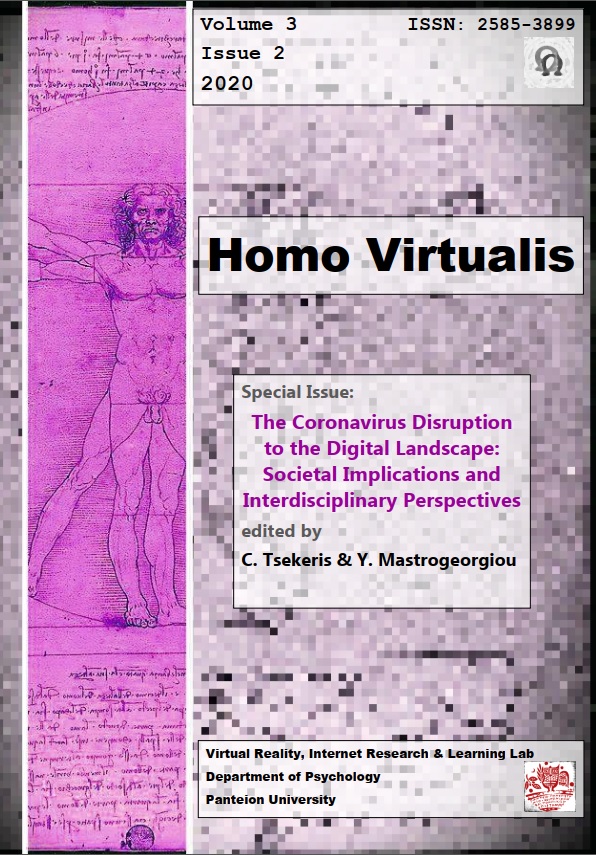Artificial Intelligence in the post-COVID-19 era

Abstract
Artificial Intelligence (AI) dominates the media and has been the focus of public discourse in the last few years. Since last March, however, COVID-19 makes almost everyday headlines because of its huge impact on our highly globalized world. This article has a dual objective. First, it aims to dissolve common misunderstandings and fears regarding AI. Second, by putting AI’s and COVID-19 societal and economic impacts into perspective, it discusses AI applications and research in the post-COVID-19 era. COVID-19 has played a catalytic role in accelerating the use of AI to mitigate the pandemic’s devastating effects. It is up to us to use AI in a responsible and ethical way that includes and benefits the whole humanity.
Article Details
- How to Cite
-
Chymis, A. (2020). Artificial Intelligence in the post-COVID-19 era. Homo Virtualis, 3(2), 55–67. https://doi.org/10.12681/homvir.25449
- Section
- Articles

This work is licensed under a Creative Commons Attribution 4.0 International License.
Authors who publish with this journal agree to the following terms:
· Authors retain copyright and grant the journal right of first publication with the work simultaneously licensed under a Creative Commons Attribution License that allows others to share the work with an acknowledgement of the work's authorship and initial publication in this journal.
· Authors are able to enter into separate, additional contractual arrangements for the non-exclusive distribution of the journal's published version of the work (e.g. post it to an institutional repository or publish it in a book), with an acknowledgement of its initial publication in this journal.
· Authors are permitted and encouraged to post their work online (preferably in institutional repositories or on their website) prior to and during the submission process, as it can lead to productive exchanges, as well as earlier and greater citation of published work.


